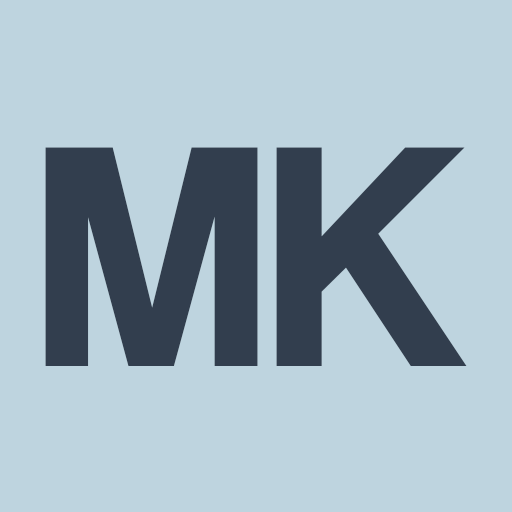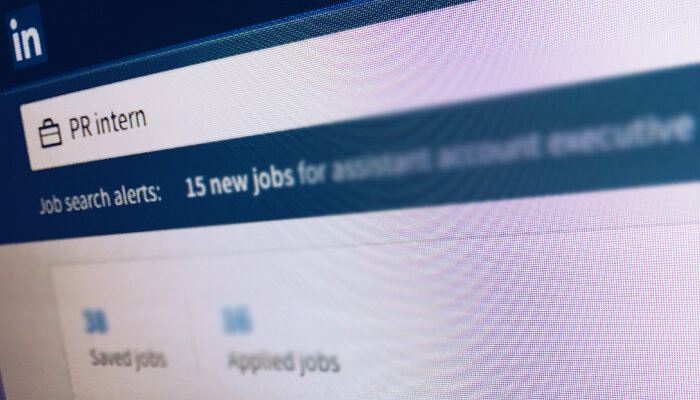Intern guide: finding an internship (1/3)
Nothing will make you stand out more in the job market than having some work experience under your belt. I can tell you that after talking with the most prominent industry professionals, and after undertaking a lot of interviews when HR teams were treating internships like a gold. Interning isn't easy. The situation in the current job market is tough. Ironically, sometimes in order to secure a work experience, you need a previous... work experience. With the three-part intern guide series I'll share my advice on how to secure an internship, then how you can thrive during the placement, and finally what to do afterwards.
#1 Research and make lists
First and foremost, you need to identify places you'd like to work for. Find employers that you really admire and whose values you subscribe to. Then make a list in Excel with all the information you'll need, including the name of the contact from HR (or directly from the team you'd like to work with), their e-mail address, latest developments in the company (this will make your cover letter stand out). Even though PR is a very fast-moving industry, there is no harm in approaching with queries about placements in advance. If you won't be able to secure them at the given time, you'll surely be remembered and it'll pay the dividends in the future. Do your research and know the job market!
#2 Know your tools
We often take for granted social and digital tools. We've got no idea how blessed we are with the technology. In searching the right intern ventures, knowing your tools is key. LinkedIn is a fabulous database of people, but it also has the Jobs section. You can search for the different job postings here and even apply directly from the platform's interface. Never underestimate LinkedIn. Another godsend of a feature is an ability to set up alerts. You can set it for the chosen companies, or for the terms such as "PR intern." Monitor the openings regularly.
Another brilliant way of staying on the top of job (internship) hunting is following social media feeds of selected companies. Twitter lists will come in handy here. (I'd urge you to see my guide on how to use the overly underestimated Twitter lists.)
As previously mentioned, you can also create your own database of places you'd like to intern at. Excel might be a scary piece of software, but this tool will surely become your best friend in the future PR career.
#3 Know your network
Even more important than knowing your tools is knowing your network. One of the things I always emphasise on MK is that networking is crucial. I've done a networking guide a while ago. When you know employees of the place you'd like to secure an internship at, you can always ask them to keep you in mind when they've got openings. Many positions are not as widely advertised, so knowing industry pros gives you an edge. I've managed to secure two work experiences placements through networking events! Meet new people as often as you can and keep in touch with them.
And talking about networking events... PRCA is hosting London Careers Fair this Wednesdaywith some of the greatest agencies in the comms industry. It'll surely be a fabulous place for you to meet pros.
Program for the day:10.00 Registration10.30 “Introduction to 21st century Communications” by MSL Group11.00 "New Media Landscape" by Dan Miller, Vice President, Communications, VICE Media11.30 "Campaign Masterclass" by Rachel Sansom, Head of Brand, MHP Communications12.15 Lunch13.00 PR Panel "The future of the PR and Communications industry"Nick Clark, Managing Director, Nelson Bostock UnlimitedGiles Peddy, Managing Director, Lewis Communications LtdPreena Gadher, Managing Director, Riot Communications14.00-17.00 Careers Fair (visiting stands)
For more information, visit PRCA website! Kudos for organising to the brilliant Mary Davoudi.
#4 Get applying!
Once you've undertaken the research, got to know the tools, met some inspirational practitioners at the networking event, you can put all my advice into the practice. Prepare your cover letter and CV (more on those below!). Don't get discouraged by rejections and lack of responses -- that happens. Keep applying and you'll get results. Good luck!
#5 Pro's advice -- Andy Jones
What about employers' view on the internship hunting? CV and cover letter are your way in and they can make you stand out. But use them wisely. There are some rules to adhere. I asked the legendary Andy Jones of FleishmanHillard Fishburn about his advice when hunting for your interning place on Earth.
"It’s often the first piece of advice muttered by anyone in any industry but research is key. Researching the agency beforehand provides you two key things. The first benefit is that it allows you precision in your covering letter, instead of vaguely discussing wanting to work for a big agency and learn lots, you can say why you want to work for the agency, what clients or accounts you’d love to contribute to. The second, it shows the recruiter you actually care. We’ve all been guilty (well I hope so) of firing off a CV and a generic cover letter for a job you’d like but that never works.
"The simple fact is, unfortunately, we have more intern applications than intern positions. So showcasing knowledge and passion is going to do wonders for you.
Showcasing knowledge and passion is going to do wonders for you.
"For your CV, I’m a big fan of a one page copy. It’s understandable you want to show off as many of your achievements as possible but you need to make as big an impact as possible quickly. And opening with a paragraph on how your social and enjoy hanging out with friends is doing you no favours. Look objectively at your CV, what is the absolute important stuff I need people to know and what’s the fluff? Then get rid of the fluff. In the past couple of years, I’ve seen a big uptick in designed CVs as well, and while you can very much over-do it, a touch of design really goes a long way. Not everyone is blessed with design skills, but take a look at sample CVs for inspiration and have a go. Send as a pdf and don’t use Comic Sans.
Not everyone is blessed with design skills, but take a look at sample CVs for inspiration and have a go.
"For the covering letter, you might want to focus on what you want out of the internship, how it’s going to help you out. You’re missing a trick if you’re not explaining what value you can bring to the agency. Internships aren’t just fetching the papers and making the teas anymore (though, piece of advice, offering someone a tea or coffee is a strong way to make a good impression), we want our interns to research, write, think and create. So use your covering letter to prove you can do that. I also like to refer to the job requirements and person specification and see if I’ve covered everything asked. A lot of places I’ve interned at will use it as a checklist, so make sure they can tick off each point easily. Finally, sounding intelligent and being intelligent are two different things, ensure you’re making your points clearly and avoid the jargon. LinkedIn has a brilliant blog on buzzwords – use it!"
Andy Jones is Marketing Executive at the Bankside-based FleishmanHillard Fishburn. Make sure you follow him on Twitter. You can check FHF's work on their website.
***
Make sure you visit next week for the second part of the guide, which will be on thriving as an intern.
If you have any suggestions, or would like to give me a feedback, feel free to email me at kl.marcel [at] gmail.com, tweet me @marcelkl or see my LinkedIn. Thanks for stopping by, have a splendid day!




